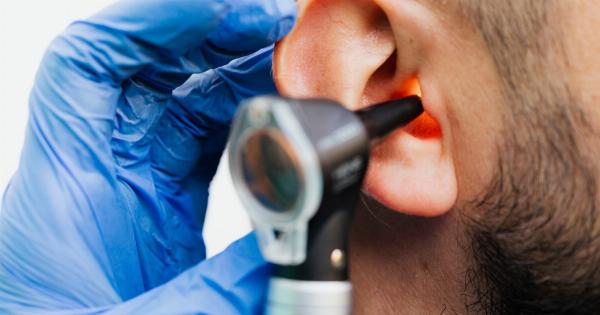Vertigo can be a debilitating condition, causing dizziness, disorientation, and a feeling of imbalance. For most individuals, vertigo is a temporary sensation that resolves on its own or with the help of medical intervention.
However, for a select few like George Baltadoros, vertigo becomes a dangerous and life-altering condition. In this article, we explore the nature of George Baltadoros’ vertigo and shed light on the potential risks and challenges he faces.
Understanding Vertigo
Vertigo is characterized by a false sensation of movement, often described as spinning or whirling, despite the absence of actual movement in the environment.
It is commonly caused by an underlying issue within the inner ear, which plays a crucial role in maintaining balance and equilibrium. George Baltadoros, unfortunately, experiences vertigo due to a condition known as Meniere’s disease.
Meniere’s Disease and George’s Struggle
Meniere’s disease is a chronic condition that affects the inner ear and can lead to recurring episodes of vertigo, along with other symptoms such as hearing loss, tinnitus, and ear pressure.
George Baltadoros’ vertigo is a result of Meniere’s disease, which significantly impacts his daily life. The unpredictability and severity of vertigo attacks make it difficult for George to carry out regular activities, hold a job, or even enjoy simple pleasures.
The Impact on George’s Independence
George Baltadoros, an active and adventurous individual before the onset of Meniere’s disease, now finds his independence compromised.
The fear of sudden vertigo attacks prevents him from traveling alone, participating in physical activities, or even venturing out into crowded spaces. This loss of mobility and freedom has taken a toll on George, affecting his mental well-being and overall quality of life.
The Physical Dangers
Aside from the emotional and psychological impact, George Baltadoros’ vertigo poses substantial physical dangers.
During a vertigo episode, George experiences severe dizziness and disorientation, making it challenging to maintain balance or engage in daily tasks. This significantly increases the risk of falls, leading to potential injuries, fractures, and even head trauma. The constant fear of injury haunts George, further exacerbating his anxiety and limiting his ability to lead a normal life.
The Psychological Toll
Living with chronic vertigo has a significant psychological impact on George Baltadoros. The fear and uncertainty surrounding his condition have led to increased anxiety and depression.
The inability to predict or control vertigo attacks causes immense stress, further exacerbating the symptoms. George’s sense of self-worth and confidence have been eroded, resulting in social isolation and a decreased enthusiasm for life’s activities.
Treatment Options for George
George Baltadoros has sought various treatment options to manage his vertigo and mitigate its impact on his life. However, finding an effective treatment plan has proven to be a challenging journey.
Medications, physical therapy, and lifestyle modifications can provide temporary relief, but there is no one-size-fits-all solution. George continues to search for new treatment options, hoping to regain control over his vertigo and restore his independence.
The Importance of Support
In George Baltadoros’ battle against vertigo, the support of loved ones and a strong network is crucial. Understanding the challenges he faces, empathetic individuals can provide emotional support and assistance when needed.
George relies on his family and close friends to help him during vertigo attacks and to accompany him on outings to ensure his safety. Their unwavering support has been an integral part of his coping process.
Spreading Awareness and Empathy
George Baltadoros’ story sheds light on the dangerous nature of vertigo and the significant impact it can have on an individual’s life.
By spreading awareness about vertigo and its effects, we foster empathy and understanding for those like George who battle this invisible condition every day. It is essential to recognize the challenges faced by individuals with vertigo and offer support, encouragement, and resources to improve their quality of life.
Conclusion
George Baltadoros’ vertigo caused by Meniere’s disease is a truly debilitating condition. It not only affects his physical well-being but also takes a toll on his mental health and independence.
The constant fear of vertigo attacks and the resulting limitations have reshaped George’s life in ways he never imagined. However, with support, awareness, and ongoing research, there is hope for individuals like George to find effective treatment and reclaim their lives from the clutches of vertigo.

























